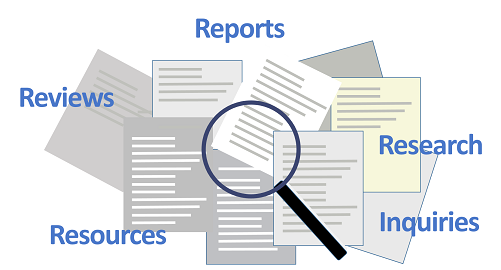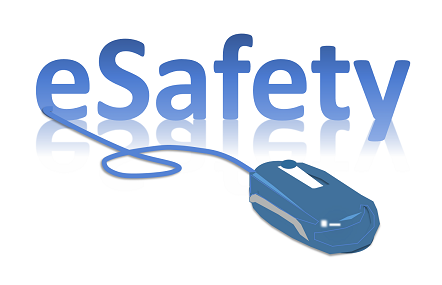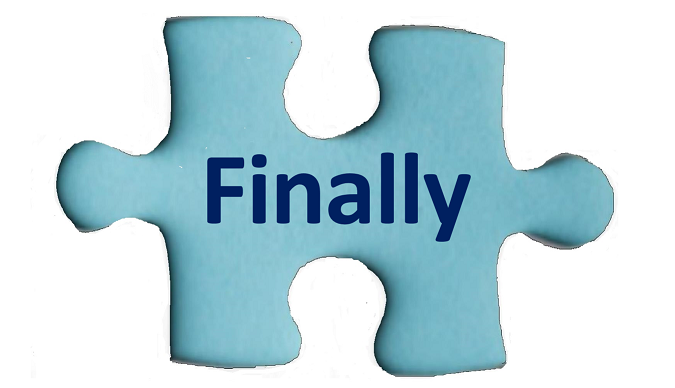Safeguarding News March 2022
SAFEcic is also accepting many more bookings for its face to face safeguarding training and audit services. There is also a packed calendar of blended learning events available to book for your organisation. The courses are a very cost effective way of training your staff and volunteers.
SAFEcic Blended Learning Training Calendar
Leading on Child and Adult Safeguarding
Safeguarding Training, Leading on Child and Adult. Online course plus Zoom
Tue, 10 May 2022
10:30 – 12:00 BST
Safeguarding Training, Leading on Child and Adult. Online course plus Zoom
Wed, 15 June 2022
10:30 – 12:00 BST
Safeguarding Training, Leading on Child and Adult. Online course plus Zoom
Tue, 12 July 2022
10:30 – 12:00 BST
Safeguarding Training, Leading on Child and Adult. Online course plus Zoom
Wed, 17 August 2022
10:30 – 12:00 BST
Safeguarding Training, Leading on Child and Adult. Online course plus Zoom
Wed, 21 September 2022
10:30 – 12:00 BST
Safeguarding Training, Leading on Child and Adult. Online course plus Zoom
Wed, 9 November 2022
10:30 – 12:00 GMT
Safeguarding Training, Leading on Child and Adult. Online course plus Zoom
Tue, 13 December 2022
10:30 – 12:00 GMT
Standard Child and Adult Safeguarding
Safeguarding Training, Standard Child and Adult. Online Course plus Zoom
Wed, 25 May 2022
10:30 – 12:00 BST
Safeguarding Training, Standard Child and Adult. Online Course plus Zoom
Tue, 5 July 2022
10:30 – 12:00 BST
Safeguarding Training, Standard Child and Adult. Online Course plus Zoom
Tue, 27 September 2022
10:30 – 12:00 BST
Safeguarding Training, Standard Child and Adult. Online Course plus Zoom
Wed, 23 November 2022
10:30 – 12:00 GMT
Safeguarding: Trustees’ legal responsibilities
Safeguarding: Trustees' legal responsibilities. Online Course plus Zoom
Tue, 24 May 2022
10:00 – 11:30 BST
Safeguarding: Trustees' legal responsibilities. Online Course plus Zoom
Thu, 14 July 2022
10:00 – 11:30 BST
Safeguarding: Trustees' legal responsibilities. Online Course plus Zoom
Tue, 20 September 2022
10:00 – 11:30 BST
Safeguarding: Trustees' legal responsibilities. Online Course plus Zoom
Thu, 8 December 2022
10:00 – 11:30 GMT
Safer Recruitment Training. Online course plus 2 Hr Live Online training
Tue, 14 June 2022
10:00 – 12:00 BST
Safer Recruitment Training. Online course plus 2 Hr Live Online training
Thu, 15 September 2022
10:00 – 12:00 BST
Safer Recruitment Training. Online course plus 2 Hr Live Online training
Tue, 29 November 2022
10:00 – 12:00 GMT
SAFEcic's free hub resources by setting have been relocated to their new home and are now available through the SAFEcic.co.uk main menu. Alternately you can bookmark the links below:
Education | Dental | Charities | GP & Primary Medical Services | Fath Groups | Entertainment & Leisure | Working Overseas |
Legislation & Bills
England and Wales
Bills
The Marriage and Civil Partnership (Minimum Age) Bill is a Private Member’s Bill sponsored by Pauline Latham (Conservative). Explanatory Notes have been prepared by the Ministry of Justice and Home Office to explain how this might affect marriages and civil partnerships which take place outside of England and Wales:
The Bill would raise to 18 the minimum age for marriage and civil partnership in England and Wales.
The anticipated effect of this change on the common law will also mean that any marriages which take place overseas, or in Scotland or Northern Ireland, involving under 18s, where one of the parties is domiciled in England and Wales, will not be legally recognised in England and Wales. This change to recognition will also apply to civil partnerships.
The Bill would also expand the existing criminal law on forced marriage to make it illegal for a person to arrange the marriage of a person under the age of 18 in England and Wales. The offence would apply to any religious or civil ceremony of marriage, whether or not it is legally binding. The existing law only applies if a form of coercion is used or if the victim lacks capacity under the Mental Capacity Act 2005.
In its Tackling violence against women and girls strategy the Government set out its commitment to “the goal of ending child marriage in this country”. It also acknowledged “the need to signal to other countries that child marriage is something which needs to be tackled”.
Legislation
England and Wales
Reports, Reviews, Inquiries, Consultations and Research

1. Schools reluctant to report child sexual abuse by staff and pupils, report finds
- Setting nationally accredited standards and levels of safeguarding training in schools;
- Making the highest level of safeguarding training mandatory for headteachers, designated safeguarding leads in England or designated safeguarding persons in Wales, designated safeguarding governors, or the proprietor or head of the proprietorial body;
- Reintroducing a duty on boarding schools and residential special schools to inform the relevant inspectorate of allegations of child sexual abuse and other serious incidents, with professional or regulatory consequences for breach of this duty
- Finding 1: The school was fully compliant with expected practice standards when responding to its concerns about Child Q smelling of cannabis and its subsequent search of Child Q’s coat, bag, scarf and shoes. This demonstrated good curiosity by involved staff and an alertness to potential indicators of risk.
- Finding 2: The decision to strip search Child Q was insufficiently attuned to her best interests or right to privacy.
- Finding 3: School staff deferred to the authority of the police on their arrival at school. They should have been more challenging to the police, seeking clarity about the actions they intended to take. All practitioners need to be mindful of their duties to uphold the best interests of children.
- Finding 4: School staff had an insufficient focus on the safeguarding needs of Child Q when responding to concerns about suspected drug use.
- Finding 5: The application of the law and policy governing the strip searching of children can be variable and open to interpretation.
- Finding 6: The absence of any specific requirement to seek parental consent when strip searching children undermines the principles of parental responsibility and partnership working with parents to safeguard children.
- Finding 7: The Covid-19 restrictions in place at the time appeared to have frustrated effective communication between school staff and the Safer Schools Officer.
- Finding 8: Having considered the context of the incident, the views of those engaged in the review and the impact felt by Child Q and her family, racism (whether deliberate or not) was likely to have been an influencing factor in the decision to undertake a strip search.
- One type will evaluate the multi-agency response to identification of initial need and risk (or the ‘front door’ of child protection).
- The other type will look at a particular theme or cohort of children, the first of which will focus on the multi-agency response to the criminal exploitation of children.
Worthy of Note

1. Bus and Tram Wrapped in the A-Z of Consent is launched in Nottingham as part of the Safer Women at Night (SWaN) funding. Created by the Consent Coalition, a group of organisations working together to raise awareness of consent and reduce sexual violence, the A-Z of Consent features different words relating to consent. Its aim is to get people talking about sexual consent in a way that engaging and informative. The vehicles will be wrapped in the campaign colours for the next 12 months, with the bus visiting all areas of Nottingham and NET Tram serving many key locations across the city. In addition to this project, they include:
- Development of a Safe Space Pledge in association with Nottingham BID, Nottingham Best Bar None and the Consent Coalition.
- Training for pub, bar and venue workers to enable them to recognise and respond to incidents where women might be experiencing distress or harassment.
- Additional protection through Police Nights of Action on the tram network in the city
Charities

1. Regulators urge safe giving to support Ukraine
The Charity Commission and Fundraising Regulator have urged the public to ‘give safely’ to registered charities helping and supporting those affected by the invasion of Ukraine.
As the conflict and ensuing humanitarian situation in Ukraine continues to escalate, it is vital that charitable donations of goods and money reach their intended causes. UK charities are pivotal to a collective response to this crisis.
The Disasters Emergency Committee, a coalition of 15 leading UK charities, has launched its collective appeal to provide emergency aid and rapid relief to civilians suffering during the conflict. Many registered charities are also helping to provide vital life-saving services, like water, food and healthcare, to those caught up in the conflict, including those forced to flee to neighbouring countries.
By giving to a registered, regulated charity, the public can have assurance that their funds will be accounted for in line with the charity law framework. Established charities with experience of responding to disasters are usually best placed to reach victims on the ground.
Members of the public initiating their own informal fundraising appeals that are not linked to established registered charities should be aware of the ongoing responsibilities associated with overseeing and managing funds and ensuring they are applied in line with donors’ wishes.
eSafety and Scams
- Provide online anonymity– VPNs work by encrypting your online activity, thus preventing the user’s activity and location from being tracked. Some VPNs can also allow users to set their online location, which can make worldwide content previously unavailable, now accessible. This can include accessing films and other types of media from around the world.
- Cyber-security and data protection – As online activity is encrypted, VPNs can support against cyber-attacks and security threats such as Malware. A lot of businesses will use them to help keep their data and sensitive information more secure.
- Can bypass other security filters – As online activity is hidden from the established internet service provider; it can mean that other security filters such as parental controls you may have already set up for the household are bypassed in the process.
- Potential for more harmful content – As security features are potentially being bypassed from the internet service provider, it means that there is more potential for harmful content to be exposed to members of the family. Some VPNs can allow you to list certain websites where the VPN will become inactive but this usually requires manually inputting sites.
- Lots of options – There are many options available for VPNs. They can often range in price and there is often differences in what features they provide. It is important to always research the trustworthiness and quality of a VPN before it is brought and active within a household.
The Reason to Remain Vigilant in All Aspects of Safeguarding

1. 450 people have been arrested in the UK after they were identified as members of an online platform used for trading child sexual abuse material.
The material was some of the most ‘horrific and devastating’ investigators had seen. It included a particularly disturbing and sadistic video series, which showed the torture, rape and sexual abuse of three kidnapped young girls, one of whom was an 18 month old toddler.
2. Four people who stole more than £145,000 from a vulnerable relative have been sentenced.
Scott Billington, Janet Billington, Kieth Billington and Vicky Bailey all appeared at Chester Crown Court on Friday 11 March where they were sentenced to a total of 11 years in prison.
3. A Lancashire man has been jailed for repeatedly raping and sexually assaulting two young children.
Nigel Turner, 72, from Morecambe, was arrested by National Crime Agency officers in November 2021, after he distributed multiple indecent images of the children (IIOC) via an online messaging app.
And Finally
Under the Children (Abolition of Defence of Reasonable Punishment) (Wales) Act 2020 all types of physical punishment, such as smacking, hitting, slapping and shaking, are illegal. The new law applies to everybody in Wales, including visitors.
Wales joins more than 60 nations across the world to end the physical punishment of children. This landmark legislation removes the archaic 160-year-old legal defence and provides children the same protection from assault as adults.






